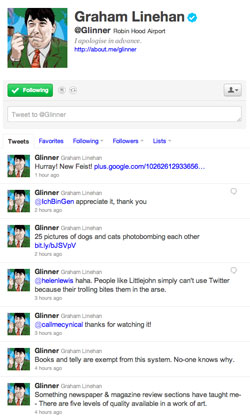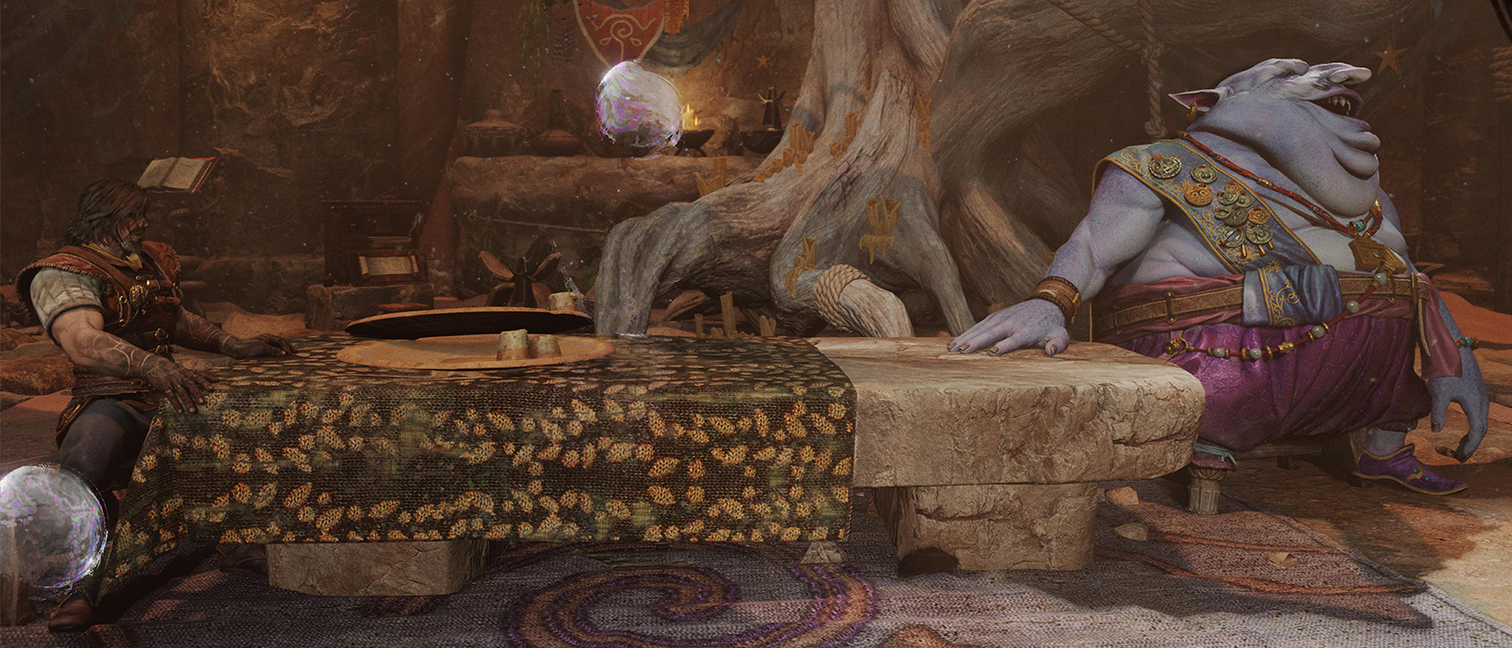Graham Linehan on Twitter
Graham Linehan, comedy writer and creator of The IT Crowd, Black Books and Father Ted, is an avid Twitterer. Here he talks to Craig Grannell on his love for the service and what it got wrong
Graham Linehan is well-known for his comedy writing. He's the creator of The IT Crowd, co-creator (with Arthur Mathews) of Father Ted and Big Train, the co-creator of Black Books (with Dylan Moran), and he's written for theatre. His adaptation of The Ladykillers comes to The Gielgud Theatre next month. But Linehan's also an avid Twitterer; having embraced the service back in 2007, he's since posted tens of thousands of tweets. .net caught up with him to further explore his love of the internet and social networking, and to discover what he thought Twitter got wrong.
"I'm a comedy writer and I guess recently I've become someone who really believes in the internet," begins Linehan. "Not that I believe it exists — I'm pretty sure it exists — but I believe in its power to change the world for the better. I think we're often called 'cyber utopians', but I don't think it's a utopian ideal to think things could get a little bit better because of the internet. Even if it's just selling the stuff in your attic, that means things are better than they were 20 years ago!"
Digital evolution

But Linehan strongly believes Twitter and other social networks aren't mere throwaway services, solely for discussing things of little importance: "I have a theory that you could say the human race is a species that can fly, because through our own brainpower, we've managed to create machines that bring us through the air. In the same way, you could say we're a kind of self-repairing species, like, I don't know, ants. If they see there's a problem, a big bunch of ants go over to the problem and sort it out." He mentions #riotcleanup, which managed to galvanise many hundreds of people into action, rapidly cleaning up the wreckage from the 2011 UK riots. "There was all this damage and everyone flooded to where the damage was and fixed it."
This, explains Linehan, is why he gets frustrated with people who can't see how powerful social networking is. And he genuinely believes we're 'evolving': "It's like accelerated evolution, but at the same time, it's kind of an artificial evolution, because it's all technology-based. If the oil runs out, we're back to just sitting in pubs."
Linehan finds it interesting that there are almost two 'levels' of people now. "The first level are all these engaged social media users who are so much more aware of current events and how to fix your own boiler or be your own IT Guy… That's the kind of thing I've shared or had shared with me on Twitter: news stories, household tips, software that allows you to watch region-blocked stuff, like TunnelBear.
“And then there's the other level of person, who have not a clue that any of this is going on." He notes that he's not including people who don't know about the likes of Twitter, but those who specifically decide they don't want anything to do with social media: "I'm talking about people who still get the majority of their information from four or five newspaper columnists. To me, they're the people who you meet at parties, who say things like 'Oh, I'm sorry, but I don't want to know what you're having for dinner!'. They still use these clichs, but everyone else is playing Vulcan chess."
Learning curves
Recently, Linehan has been on a few programmes where he says you'd expect those involved to be very plugged-in about what's going on; and yet they often haven't heard about things he's talked about. "It's because the team is made up mostly of people over 40 who don't use Twitter. They're missing some sort of brain function that enables them to use it. I understand that, because Twitter has a big problem with its learning curve, which is incredibly steep for a new user," he says, adding that this isn't the only problem for the service.
"Also, I felt Twitter concentrated on the wrong aspect: they concentrated too much on broadcasting and not enough on information gathering, which is what is great about it. And so you get all these people who go on and feel immediately stupid because they're posting to no-one and they don't see the point of it at all. It's very understandable that a lot of people leave and don't come back."
You can follow Graham Linehan on Twitter (@glinner) and Google+. He also has a WordPress blog and website.

Thank you for reading 5 articles this month* Join now for unlimited access
Enjoy your first month for just £1 / $1 / €1
*Read 5 free articles per month without a subscription

Join now for unlimited access
Try first month for just £1 / $1 / €1
Get the Creative Bloq Newsletter
Daily design news, reviews, how-tos and more, as picked by the editors.

The Creative Bloq team is made up of a group of art and design enthusiasts, and has changed and evolved since Creative Bloq began back in 2012. The current website team consists of eight full-time members of staff: Editor Georgia Coggan, Deputy Editor Rosie Hilder, Ecommerce Editor Beren Neale, Senior News Editor Daniel Piper, Editor, Digital Art and 3D Ian Dean, Tech Reviews Editor Erlingur Einarsson, Ecommerce Writer Beth Nicholls and Staff Writer Natalie Fear, as well as a roster of freelancers from around the world. The ImagineFX magazine team also pitch in, ensuring that content from leading digital art publication ImagineFX is represented on Creative Bloq.
